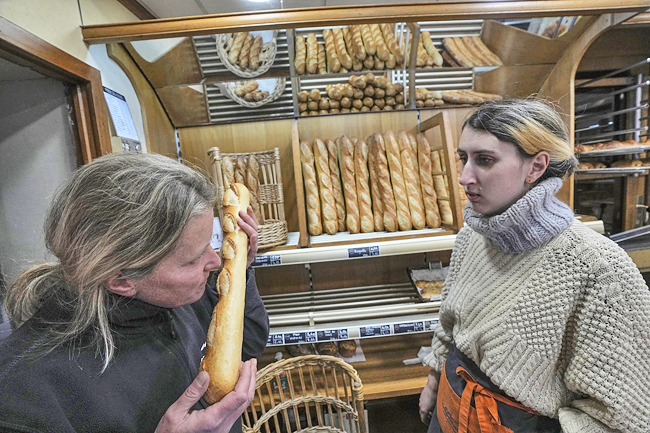PARIS (AP) – The humble baguette – the crunchy ambassador for French baking around the world – is being added to the United Nations’ (UN) list of intangible cultural heritage as a cherished tradition to be preserved by humanity.
UN Educational, Scientific and Cultural Organization (UNESCO) experts gathering in Morocco this week decided that the simple French flute – made only of flour, water, salt, and yeast – deserved UN recognition, after France’s Culture Ministry warned of a “continuous decline” in the number of traditional bakeries, with some 400 closing every year over the past half-century.
UN Cultural Agency’s Chief Audrey Azoulay said the decision honours more than just bread; it recognises the “savoir-faire of artisanal bakers” and “a daily ritual”. “It is important that such craft knowledge and social practices can continue to exist in the future,” added Azoulay, a former French culture minister.
The agency defines intangible cultural heritage as “traditions or living expressions inherited from our ancestors and passed on to our descendants”.
With the bread’s new status, the French government said it planned to create an artisanal baguette day, called the ‘Open Bakehouse Day’, to connect the French better with their heritage.

Back in France, bakers seemed proud, if unsurprised. “Of course, it should be on the list because the baguette symbolises the world. It’s universal,” said baker at Julien’s Bakery near Paris’ Champs-Elysees avenue Asma Farhat. “If there’s no baguette, you can’t have a proper meal. In the morning you can toast it, for lunch it’s a sandwich, and then it accompanies dinner.”
Although it seems like the quintessential French product, the baguette was said to have been invented by Vienna-born baker August Zang in 1839. Zang put in place France’s steam oven, making it possible to produce bread with a brittle crust yet fluffy interior.
The product’s zenith did not come until the 1920s, with the advent of a French law preventing bakers from working before 4am. The baguette’s long, thin shape meant it could be made more quickly than its stodgy cousins, so it was the only bread that bakers could make in time for breakfast.
Despite the decline in traditional bakery numbers today, France’s 67 million people still remain voracious baguette consumers – purchased at a variety of sales points, including in supermarkets.







